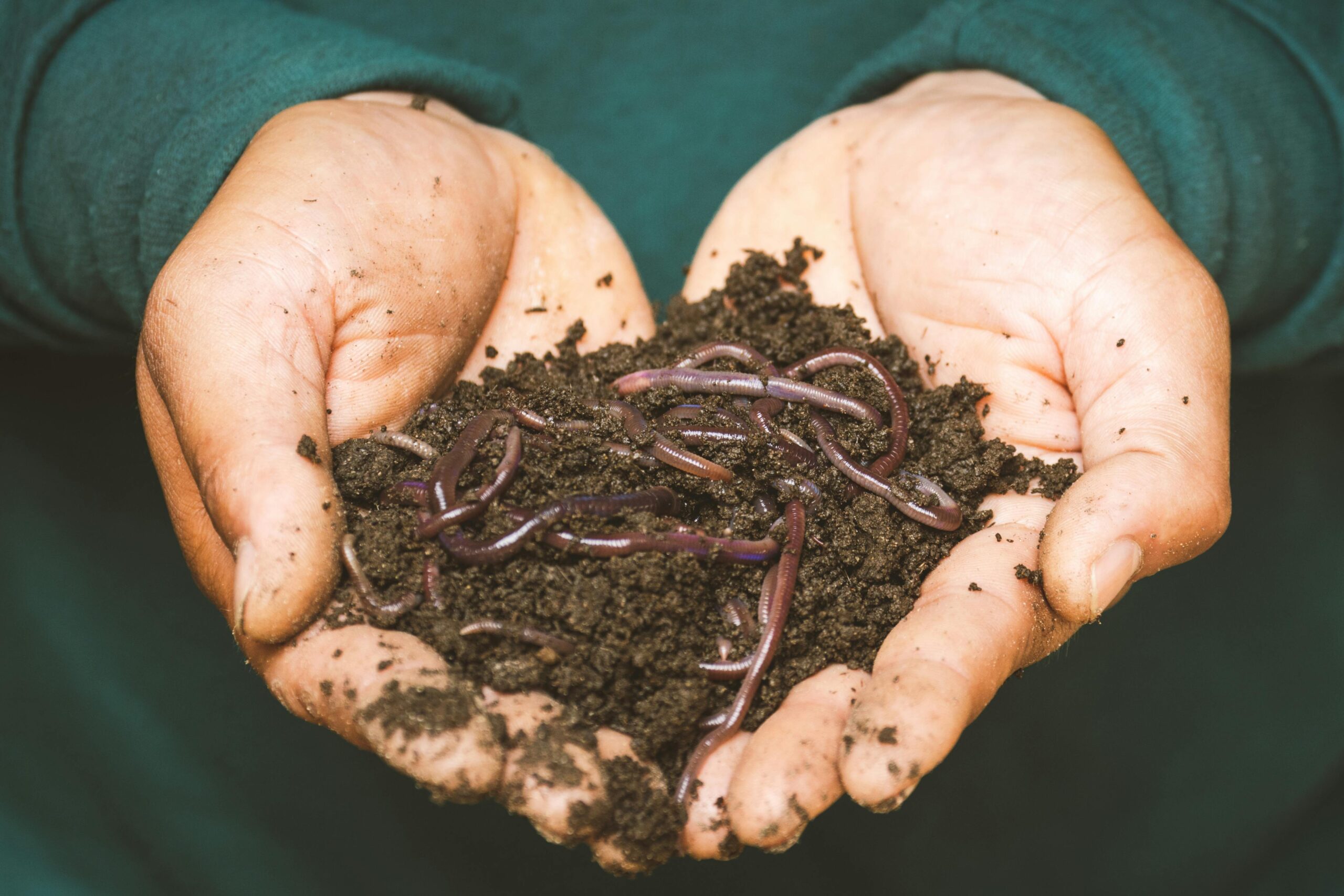Your gut microbiome is a living ecosystem that profoundly influences your overall health, from digestion to immunity and even mental well-being.
🦠 The Hidden Universe Inside You: Understanding Your Gut Microbiome
Deep within your digestive system exists a thriving metropolis of microorganisms—trillions of bacteria, fungi, viruses, and other microbes that collectively form your gut microbiome. This complex community weighs approximately three pounds and contains more cells than your entire body. Far from being passive residents, these microscopic inhabitants actively communicate with your organs, influence your mood, regulate your metabolism, and serve as your body’s first line of defense against pathogens.
The relationship between you and your gut microbiome is symbiotic. You provide them with a warm home and nutrients, while they perform essential functions that keep you healthy. They synthesize vitamins like B12 and K, break down complex carbohydrates that your body cannot digest on its own, produce neurotransmitters that affect your brain, and train your immune system to distinguish between friends and foes.
Research has revealed that the composition of your gut microbiome is as unique as your fingerprint. While you inherit some microbial patterns from your parents, the foods you eat have the most significant ongoing impact on which microbes thrive and which ones diminish. This means you hold remarkable power to shape your internal ecosystem through dietary choices.
🍽️ The Food-Microbe Connection: How Your Diet Shapes Your Internal Ecosystem
Every meal you consume is essentially a decision about which microbes you want to feed. Different bacterial species prefer different nutrients, and your dietary patterns determine which communities flourish in your gut. This selective feeding process begins within hours of eating and can produce measurable changes in your microbiome composition within days.
When you eat a diverse, plant-rich diet, you encourage the growth of beneficial bacteria that produce short-chain fatty acids—powerful compounds that reduce inflammation, strengthen your intestinal barrier, and even influence your brain chemistry. Conversely, diets high in processed foods, sugar, and unhealthy fats can promote the growth of harmful bacteria that contribute to inflammation, metabolic disorders, and compromised immunity.
The Fiber Factor: Your Microbiome’s Favorite Food
Dietary fiber stands as the single most important nutrient for gut health. Your body cannot digest fiber, but your gut bacteria absolutely thrive on it. When beneficial bacteria ferment fiber, they produce short-chain fatty acids like butyrate, acetate, and propionate—compounds that nourish your intestinal cells, reduce inflammation throughout your body, and help regulate your metabolism and appetite.
Unfortunately, most people consume only about half the recommended daily fiber intake of 25-38 grams. This fiber deficit starves your beneficial bacteria, forcing them to feed on the mucus layer that protects your intestinal lining—a situation that can lead to increased intestinal permeability and inflammation.
🥗 Microbiome-Friendly Foods: Building Blocks for Gut Health
Optimizing your gut health requires a strategic approach to nutrition that prioritizes microbial diversity and nourishment. The following categories of foods have demonstrated powerful effects on microbiome composition and function.
Prebiotic Powerhouses
Prebiotics are specialized plant fibers that selectively feed beneficial bacteria. These compounds resist digestion in your upper gastrointestinal tract and arrive intact in your colon, where they become fuel for your microbial allies. Foods particularly rich in prebiotics include:
- Garlic and onions: Contain inulin and fructooligosaccharides that promote Bifidobacteria growth
- Jerusalem artichokes: One of the richest sources of inulin available
- Asparagus: Provides inulin along with vitamins and minerals
- Bananas: Especially when slightly green, contain resistant starch
- Oats: Rich in beta-glucan fiber that feeds beneficial bacteria
- Apples: Contain pectin, a prebiotic fiber concentrated in the skin
- Chicory root: Contains up to 47% inulin by weight
- Dandelion greens: Provide inulin along with vitamins and antioxidants
Fermented Foods: Delivering Live Beneficial Bacteria
Fermented foods contain live microorganisms that can temporarily colonize your gut and produce beneficial metabolites. While most don’t permanently establish themselves, they provide valuable services during their transit through your digestive system. Regular consumption of fermented foods has been linked to increased microbial diversity and reduced inflammation.
- Yogurt: Choose varieties with live, active cultures and minimal added sugar
- Kefir: Contains a wider variety of bacterial strains than yogurt
- Sauerkraut: Unpasteurized versions deliver billions of Lactobacilli
- Kimchi: Korean fermented vegetables rich in probiotics and nutrients
- Kombucha: Fermented tea with beneficial bacteria and yeasts
- Miso: Fermented soybean paste that adds umami and probiotics
- Tempeh: Fermented soybeans that provide probiotics and complete protein
Polyphenol-Rich Plant Foods
Polyphenols are plant compounds with antioxidant properties that also serve as food for beneficial bacteria. These compounds stimulate the growth of health-promoting species while inhibiting potentially harmful ones. Your gut bacteria can metabolize polyphenols into bioactive compounds with anti-inflammatory and metabolic benefits.
Excellent sources include berries, dark chocolate, green tea, red wine in moderation, extra virgin olive oil, coffee, and colorful vegetables like red cabbage and purple sweet potatoes. The pigments that give these foods their vibrant colors often indicate high polyphenol content.
⚠️ Dietary Patterns That Harm Your Microbiome
Just as certain foods promote gut health, others can devastate your microbial ecosystem. Understanding these harmful patterns allows you to make informed choices that protect your internal community.
The Ultra-Processed Food Problem
Ultra-processed foods—items made primarily from industrial formulations with minimal whole food ingredients—have become dietary staples in many societies. These products typically contain refined sugars, unhealthy fats, artificial additives, emulsifiers, and preservatives that can reduce microbial diversity and promote inflammation.
Emulsifiers, commonly found in processed foods to improve texture and shelf life, have been shown to disrupt the mucus layer protecting your intestinal lining. This disruption allows bacteria to come into closer contact with intestinal cells, triggering inflammatory responses that can contribute to metabolic syndrome and inflammatory bowel conditions.
Artificial Sweeteners: A Double-Edged Sword
While marketed as healthier alternatives to sugar, artificial sweeteners like saccharin, sucralose, and aspartame can negatively impact your gut microbiome. Research indicates these compounds can alter the composition of gut bacteria in ways that paradoxically impair glucose tolerance—the very issue they’re meant to help manage.
The mechanisms appear to involve selective pressure that favors bacteria associated with metabolic dysfunction. Some studies suggest these changes can even be transferred to germ-free mice through fecal transplantation, demonstrating the powerful role of the microbiome in metabolic health.
Excessive Antibiotic Use
While not strictly dietary, antibiotic use deserves mention for its profound impact on gut health. Antibiotics are lifesaving medications when appropriately prescribed, but their broad-spectrum nature means they eliminate beneficial bacteria along with pathogens. A single course of antibiotics can reduce microbial diversity for months or even years.
When antibiotics are necessary, consider supporting your microbiome recovery with probiotic-rich foods and a fiber-dense diet. Never take antibiotics unnecessarily, and always complete prescribed courses to prevent antibiotic resistance.
🔄 The Gut-Brain Axis: How Your Microbiome Affects Your Mind
One of the most fascinating discoveries in microbiome research is the bidirectional communication between your gut and brain, known as the gut-brain axis. Your gut bacteria produce and influence neurotransmitters including serotonin, dopamine, and GABA—chemicals that regulate mood, anxiety, and cognition.
Remarkably, approximately 90% of your body’s serotonin is produced in your gut, with gut bacteria playing crucial roles in this synthesis. This connection helps explain why gastrointestinal disorders often co-occur with mood disorders, and why dietary changes can affect mental health alongside physical symptoms.
Studies have shown that people with depression and anxiety often have distinct microbiome compositions compared to healthy individuals. While researchers are still unraveling cause-and-effect relationships, evidence suggests that improving gut health through diet may offer therapeutic benefits for mental health conditions.
🏃♀️ Beyond Diet: Lifestyle Factors That Support Microbial Health
While diet exerts the strongest influence on your microbiome, other lifestyle factors contribute significantly to microbial diversity and function.
Physical Activity and Exercise
Regular exercise independently influences microbiome composition, increasing the abundance of bacteria that produce butyrate and other beneficial metabolites. Athletes tend to have greater microbial diversity than sedentary individuals, even when controlling for dietary differences. The mechanisms may involve exercise-induced changes in gut transit time, immune function, and the release of factors that create favorable conditions for beneficial bacteria.
Sleep Quality and Circadian Rhythms
Your gut bacteria exhibit circadian rhythms that align with your sleep-wake cycles. Disrupted sleep patterns can dysregulate these microbial rhythms, potentially contributing to metabolic dysfunction. Shift workers and people with chronic sleep disturbances often show altered microbiome compositions associated with increased inflammation and metabolic risk.
Stress Management
Chronic psychological stress directly impacts your gut microbiome through the release of stress hormones that alter gut motility, secretions, and immune function. Stress can reduce beneficial bacteria and increase potentially harmful species, creating a vicious cycle where gut dysbiosis further exacerbates stress responses.
Practices like meditation, yoga, deep breathing exercises, and adequate social connection can help modulate stress responses and support healthier microbiome compositions. The relationship is bidirectional—improving gut health through diet can also increase stress resilience.
📊 Practical Guidelines for a Microbiome-Optimized Diet
Translating microbiome science into practical dietary recommendations creates a framework for sustainable gut health improvement.
| Strategy | Implementation | Expected Benefits |
|---|---|---|
| Increase dietary diversity | Aim for 30+ different plant foods weekly | Enhanced microbial diversity and resilience |
| Prioritize fiber | Target 25-38g daily from varied sources | Increased SCFA production, reduced inflammation |
| Include fermented foods | Consume 1-2 servings daily | Temporary probiotic colonization, immune support |
| Eat polyphenol-rich foods | Include berries, dark chocolate, tea daily | Selective bacterial growth, antioxidant benefits |
| Minimize processed foods | Focus on whole, minimally processed options | Preserved microbial diversity, reduced inflammation |
Starting Your Microbiome Transformation
Dramatic dietary overhauls often prove unsustainable. Instead, consider gradual changes that allow both you and your microbiome to adapt. Begin by adding one serving of fermented food daily, increasing vegetable variety at meals, and swapping refined grains for whole grain alternatives.
Within weeks, you may notice improvements in digestion, energy levels, and even mood. These changes reflect real-time alterations in your microbial ecosystem as beneficial species flourish and inflammatory bacteria decline. The beauty of microbiome-focused nutrition is that improvements can manifest quickly while providing long-term protection against chronic diseases.
🌟 The Future of Personalized Microbiome Nutrition
Microbiome science is advancing rapidly, with emerging technologies allowing individuals to analyze their unique microbial compositions and receive personalized dietary recommendations. Companies now offer at-home microbiome testing kits that sequence the DNA of your gut bacteria, providing insights into which species populate your gut and how your microbiome compares to healthy references.
While these technologies hold promise, experts caution that the field is still maturing. The same dietary interventions don’t produce identical results in everyone, partly because each person’s microbiome responds differently based on existing composition, genetics, and environmental factors. However, the fundamental principles remain consistent: diverse, fiber-rich, plant-forward diets support healthier microbiomes across populations.
Future developments may include engineered probiotics designed to perform specific health functions, personalized prebiotic formulations tailored to individual microbiome profiles, and sophisticated algorithms that predict individual responses to foods based on microbiome composition. These advances will refine our ability to optimize gut health with unprecedented precision.

🎯 Taking Control of Your Microbial Destiny
Your gut microbiome represents one of the most modifiable aspects of your health. Unlike your genetic code, which remains largely fixed, your microbial community responds dynamically to the choices you make every day. This responsiveness means you possess remarkable agency in shaping your health trajectory through dietary decisions.
The path to optimal microbial health doesn’t require perfection—it requires consistency and intention. Each meal presents an opportunity to nourish the microscopic allies that support your physical and mental well-being. By prioritizing fiber-rich whole foods, incorporating fermented options, minimizing processed products, and supporting these efforts with healthy lifestyle practices, you create conditions where beneficial bacteria flourish.
As research continues unveiling the profound connections between gut microbes and virtually every aspect of health—from immunity and metabolism to brain function and longevity—the importance of microbiome-conscious nutrition becomes increasingly clear. Your gut isn’t just a digestive organ; it’s a complex ecosystem that deserves thoughtful cultivation.
Start where you are, use what you have, and make incremental changes that feel sustainable. Your microbiome will respond, adapt, and reward you with improved health that extends far beyond your digestive system. The revolution in your gut health begins with your next meal—make it count. 🌱
Toni Santos is a deep-biology researcher and conscious-evolution writer exploring how genes, microbes and synthetic life inform the future of awareness and adaptation. Through his investigations into bioinformatics, microbiome intelligence and engineered living systems, Toni examines how life itself becomes a field of awakening, design and possibility. Passionate about consciousness in biology and the evolution of living systems, Toni focuses on how life’s architecture invites insight, coherence and transformation. His work highlights the convergence of science, philosophy and emergent life — guiding readers toward a deeper encounter with their living world. Blending genetics, systems biology and evolutionary philosophy, Toni writes about the future of living systems — helping readers understand how life evolves through awareness, integration and design. His work is a tribute to: The intertwining of biology, consciousness and evolution The emergence of microbial intelligence within and around us The vision of life as designed, adaptive and self-aware Whether you are a scientist, thinker or evolving being, Toni Santos invites you to explore the biology of tomorrow — one gene, one microbe, one awakening at a time.




